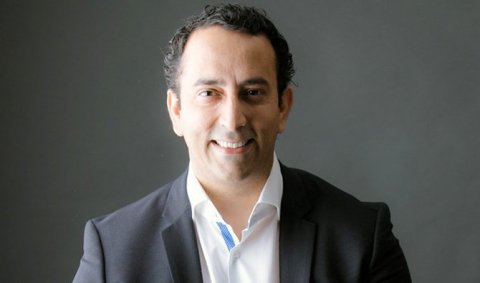Ian Khan, technologist, inventor and filmmaker for Government Experience (GX Now), spoke to CNME Editor Mark Forker, about the corrosive role social media is playing in all aspects of our lives, and how governments really need to step in to regulate ‘Big Tech’ in order to take back some control.

I am very fortunate in my position as the Editor of a technology and IT magazine to be afforded the opportunity to interview prominent figures positioned at the very forefront of our global technology ecosystem, and one of them is the charismatic, opinionated and always fascinating Ian Khan.
It is always an enlightening experience to speak to Khan, and the topic on the agenda for our latest conversation was that of Big Tech – and the seemingly imminent prospect of government regulation being imposed on social media platforms in the United States.
Many people believe social media has been the key factor in the breakdown of public discourse in many countries – and cited the contentious topic of COVID-19 passports to highlight the polarisation the platforms can have.
“There is a lot of discussion now around COVID-19 vaccination passports and there are so many different types of people commenting on it, with so many varied opinions, with some people in support of it, whilst others are vehemently opposed to the concept. Some countries are going to continue to pursue the idea, and if you look at the UK, the suggestion from Boris Johnson that you might need COVID-19 passports to go to the pub is utterly insane! This is the type of discussion that sparks so much debate, anger and hostility on these platforms, and has actually deflected away from the real issue of getting COVID-19 under control”, said Khan.
Khan also highlighted the high density of social media usage in countries such as China, India and the United States, describing the fact that Facebook has 2 billion users as ‘mind-boggling’. However, he was unambiguous in his belief that social media has changed us, and not for the better – and was scathing in how social media platforms have manipulated and exploited their users.
“I think that social media has changed us as people. We have changed our relationship with other people as a direct result of social media. It has impacted our work, businesses and economies and everything has changed because of social media. Social media companies have responsibilities, and I think it is fair to say that many of them are not sticking to that 100%. I think they have abused our privacy and have used psychological techniques to get people to click on what they want them to. Social media has absolutely abused the system”, said Khan.
Khan also revealed his sheer frustration at the way the figureheads of companies like Google, Twitter and Facebook have conducted themselves when testifying in congress, in which they have been seemingly incapable of taking accountability for the role their platforms have been played in the decay of our societies.
“Social media companies have done some bad, bad things and that is why they have all been testifying in congress of late. I would encourage anyone with an interest in social media to watch their testimonies in congress, the deflection tactics that are deployed are just staggering, and they are so reluctant to take any sort of responsibility for the damage their platforms have caused. People no longer trust social media, but even though that trust has vanished, people still access the applications every day”, said Khan.
The dynamic technologist and futurist illustrated how divisiveness of the US elections and the insurrection on Capitol Hill served as further evidence as to the power social media companies have on how people act.
“They have so much power. I mean the President of the United States and leader of the free world had his account suspended by Twitter, and he was not able to do anything about it, so I think that incident alone perfectly demonstrated the power these companies have. Google, Microsoft, Facebook have all faced anti-trust litigation over the years, and Facebook has been fined billions by the EU. They have been unethical in both utilising and leveraging people’s emotions and data. They have harvested and monetised their data to get rich and they are controlling a lot more than just people’s social media posts”, said Khan.
According to Khan, governments are in the business of responsibility. They are responsible for their countries’ economy, job creation, adequate housing conditions and the general health and wellbeing of their population, and he firmly believes that they need impose themselves via regulations as part of an effort to wrestle back control and tip the scales to be more balanced.
“If people are really impacted by something that the government is unable to control then governments are in many ways losing control. I think there has been a concerted effort from a number of what I would describe as good governments that are trying to fight against what social media can breed, like violence and hate speech”, said Khan.
Khan is a passionate advocate for government intervention in the form of regulation in relation to how social media companies currently operate, and he believes the time has now come for the industry to be regulated, however, he did acknowledge that regulation gets a bad rap in some quarters.
“I am cognisant of the fact that regulation sometimes has a bad name associated with it, but I think we should be thinking more about responsible regulation, or open regulation. Can you imagine if the electricity and transportation industries were not regulated? Regulation essentially means that you’ve some rules that you need to follow in order to keep things flowing with efficiency. Regulation can be a good thing, it is a good thing, but control is undoubtedly a bad thing. When you use regulation as an oppressor then that is quite clearly a bad thing. In certain countries we have witnessed over regulation and a suppression of people’s freedoms and basic rights and that is a huge problem. But social media companies have too much power are they causing corrosive damage to our societies, and quite simply it needs to be scaled back”, said Khan.
Khan also pointed out the seismic shift in terms of how easily and willingly we have surrendered our data over the last number of decades.
“I think our relationship with our information and data has changed dramatically over time. 20 years ago, we held every piece of our data very closely to us, our lives were quite secretive – and we were very protective and private. Fast forward to now, and there are people I do not even know well, and they know what kind of dog I have, what car I drive and what I had for dinner a few days ago. I have opened-up thousands of data points to the world, and I have done it voluntarily”, said Khan.
Khan does still protect some of his private information, like his bank account and social insurance numbers, but he believes that in the future we are going to start to open-up even more.
“I think in the future there will be no need to protect this information. For example, there will be no need to protect your SSN (Social Security Number), because it will not matter who knows it because it will be secure in some shape or form. Our relationship with social media and government regulation is also changing, on one hand there are people who want more distributed things like bitcoin and blockchain and have expressed a desire for their own currency, but then on the other hand there are people who do not want this, but one thing that is not up for debate, and that is that the time is nigh for social media companies to be brought to task”, declared Khan.
Khan concluded a great interview by outlining the steps he believes need to be taken to make social media platforms much safer and more inclusive for all users.
“I think that collaboration is key in terms of forging a new path forward and we need to determine what is fair and what is not fair. There needs to be a unified dialogue between the government and the private sector around the regulation and standardisation of social media entities. I think there is growing momentum to standardise the access on social media to make it safer for all our communities and make it more inclusive, and I think the private and public sectors need to come together to do it. Governments can not be the only ones dictating what should happen, otherwise it becomes a dictatorships’, we need collaboration to strike the right balance that gets all stakeholders back on track”, concluded Khan.





